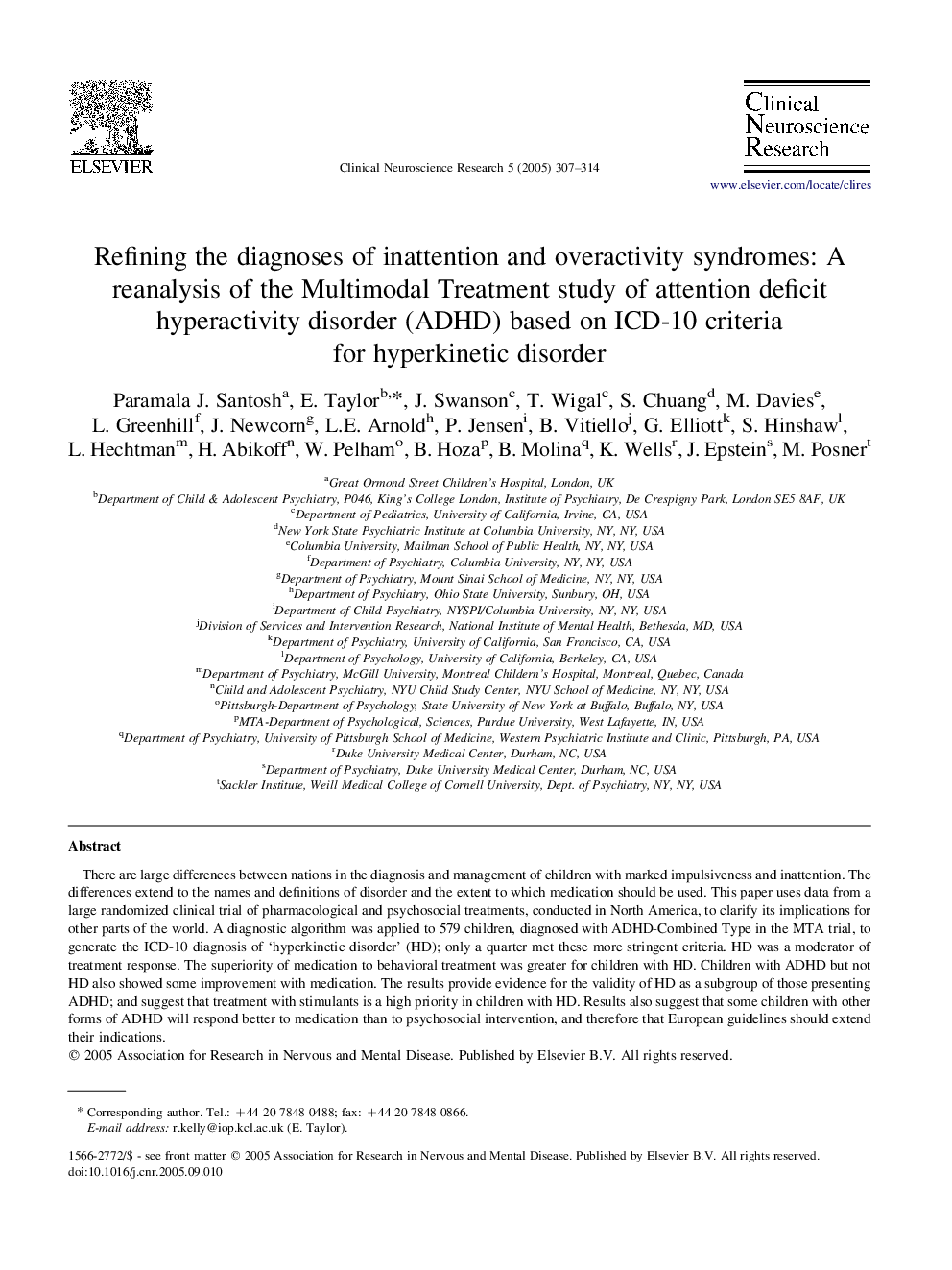| Article ID | Journal | Published Year | Pages | File Type |
|---|---|---|---|---|
| 9189877 | Clinical Neuroscience Research | 2005 | 8 Pages |
Abstract
There are large differences between nations in the diagnosis and management of children with marked impulsiveness and inattention. The differences extend to the names and definitions of disorder and the extent to which medication should be used. This paper uses data from a large randomized clinical trial of pharmacological and psychosocial treatments, conducted in North America, to clarify its implications for other parts of the world. A diagnostic algorithm was applied to 579 children, diagnosed with ADHD-Combined Type in the MTA trial, to generate the ICD-10 diagnosis of 'hyperkinetic disorder' (HD); only a quarter met these more stringent criteria. HD was a moderator of treatment response. The superiority of medication to behavioral treatment was greater for children with HD. Children with ADHD but not HD also showed some improvement with medication. The results provide evidence for the validity of HD as a subgroup of those presenting ADHD; and suggest that treatment with stimulants is a high priority in children with HD. Results also suggest that some children with other forms of ADHD will respond better to medication than to psychosocial intervention, and therefore that European guidelines should extend their indications.
Related Topics
Health Sciences
Medicine and Dentistry
Clinical Neurology
Authors
Paramala J. Santosh, E. Taylor, J. Swanson, T. Wigal, S. Chuang, M. Davies, L. Greenhill, J. Newcorn, L.E. Arnold, P. Jensen, B. Vitiello, G. Elliott, S. Hinshaw, L. Hechtman, H. Abikoff, W. Pelham, B. Hoza, B. Molina, M. Posner,
